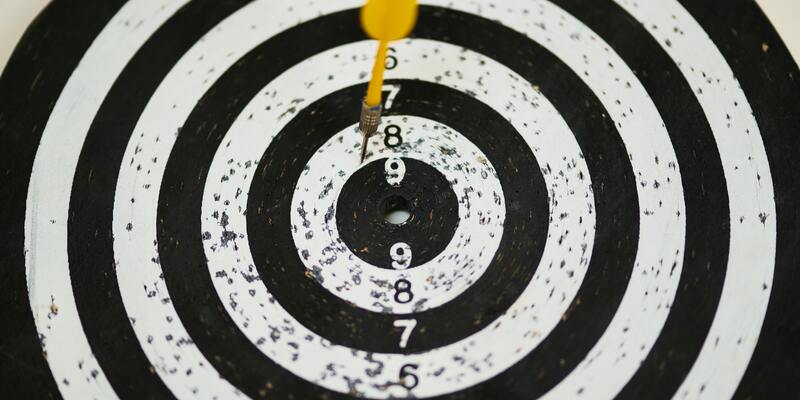Types of Procrastination: Psychology, Causes, and Proven Ways to Overcome It

By Dr Thomas MacCarty
•
Dec 23, 2024
Procrastination is a behavior in which people delay or postpone tasks or actions. Procrastination affects everyone at some point, but understanding its psychology can help you overcome it. Learn about the types of procrastination, their causes, and actionable strategies to boost your productivity.
Research has shown that 15-20% of adults procrastinate in a manner that negatively impacts their lives. Procrastination is especially common among college students with 80-95% who procrastinate when it comes to doing their assigned coursework.
To understand why people procrastinate it’s important to look at the most common reasons behind the behavior. The reasons will vary from person to person, but there are some very general factors seen in most people who procrastinate routinely.
“It’s the job that’s never started that takes longest to finish.”
Why people procrastinate
James Clear, a best-selling author on human behavior, uses the “present you vs. future you” argument to explain procrastination. He argues that people enjoy immediate gratification in the present, especially when the cost of their choices does not become apparent until far in the future.
This is in line with the reasons explained by Richard Sima, a neuroscientist turned science journalist. Sima argues that a root of procrastination may be explained by cognitive bias. Procrastinators believe that tasks will magically become easier in the future, rather than doing them now.
The more perceived effort needed to complete a task, or the less rewarding, the more likely a task will be put off into the future. Sima also states that the more an individual’s brain discounts the amount of effort needed to complete a task in the future, the more likely that task will be put off into the future.
The psychological factors of low self-efficacy and impulsiveness also come into play. If a person doesn't have the ability to start and complete a task, then the likelihood of procrastinating goes way up.
If a person has difficulty maintaining focus, and is vulnerable to lots of distractions, the individual will have a hard time resisting those distractions. The person in this situation is much more likely to procrastinate.
The value placed on a task also comes into play. The more enjoyable a task is perceived to be, the less likely procrastination to start and complete will take place. Evidence has shown that the mildly painful or boring tasks are most likely to be delayed rather than the more difficult ones. It is why busy work is routinely put off, according to Sima.
What are the types of procrastination?
There are different types of procrastinations based on the frequency and situation of a given event.
Chronic procrastination
Chronic procrastination is when a person starts to continually put things off. It becomes the go-to solution for handling tasks. Unfortunately, chronic procrastination has an effect on the procrastinator’s mental and emotional health, and there are usually other real-world consequences for not getting work done in a timely manner.
Situational procrastination
Situational procrastination depends on the domain in which the procrastination takes place. It could involve putting off academic or work tasks or not going to bed when it really is time to sleep.
Decisional procrastination
Decisional procrastination is a form of cognitive thinking that helps the procrastinator put off deciding on a task to face a more stressful situation, thus reducing the pressure in the procrastinator’s mind to deal with other situations at hand.
Behavior avoidant procrastination is a continuity of decisional procrastination, according to research by Jeremy Kristanto and Abraham Juneman.
Procrastination is usually associated with negative connotations. Everyone does it from time to time, but most people don’t routinely use procrastination as a tool to avoid tasks. There are many famous individuals that were well known procrastinators though.
Who are famous procrastinators?
The Dalai Lama, despite being the leading voice of the Tibetan people, was not always the most motivated individual and eager to get to work. In his student days, he was known as being quite the slacker and most often put off his assignments.
Bill Clinton was also a notable procrastinator and was known for failing to follow through and being cursed by distraction. His vice president, Al Gore, once called him “punctually challenged.”
Leonardo DaVinci was known for struggling with staying focused. The Mona Lisa, one of his most famous paintings, took 16 years to complete, while the painting of Virgin of the Rocks took 13 years. The other thing these three famous people had in common besides their tendency towards procrastination is they did not let it define them.
These famous figures remind us that procrastination doesn’t have to derail your ambitions. They embraced their quirks, adapted their work processes, and still made history. So even if you struggle with procrastination, you can achieve greatness by finding productivity methods that work for you—starting with tools like FLOWN’s virtual coworking sessions to help you stay accountable and focused.
“Tomorrow is often the busiest day of the week.”
Curious about hacks to beating procrastination?
From time blocking, the effect of accountability to the power of play - there are SO many ways for you to kick procrastination to the curb. Learn more about your tackling your procrastination in our blog.
5 Ways to overcome procrastinating
There are things people who procrastinate can do to minimize the impact it has on their lives. First, it is important to admit that you procrastinate and to know why it happens. Here are five proven ways to tackle procrastination head-on:
Time management
It is important to make time for time management by creating schedules for your work to be completed.
Break tasks down
It can help to break up large projects into smaller, more manageable components. Try to keep your goals realistic and frequently reassess them and the strategies needed to accomplish your work.
Use body doubling for accountability
Working alongside others can help you stay focused and beat procrastination. This technique, called body doubling, leverages the presence of others to keep you accountable. FLOWN’s virtual coworking sessions provide a supportive, distraction-free environment where you can work alongside others. Set your goals, get inspired, and stay on track in real time.
Find meaning in work
It’s also important to find meaning in the work you’re doing and to think of productive reasons to keep working on tasks that are difficult or boring. If there are tasks you prefer not to do, try to tackle them first. Otherwise, those tasks will continue to be put off until you’re facing a deadline that can lead to anxiety and shabby work.
Limit Distractions
Identify common distractions like social media, notifications, or household tasks - you can creating a dedicated workspace and use tools like website blockers to maintain focus. Try considering a digital detox during work hours to build a habit of deep concentration.
What is body doubling all about?
Boost your productivity by working alongside others through body doubling. This science-backed technique helps you stay focused, motivated, and accountable.
The benefits of body doubling are:
🔗 Stay Accountable: Share goals and get things done together.
👀 Boost Focus: Watching others work triggers your brain to follow suit.
🌍 Find Community: Connect with like-minded people from anywhere.
Find out more about how body doubling works and why it’s so effective in our science of body doubling guide.
What are anti-procrastination techniques?
There are many suggestions to help deal with procrastination, regardless of your procrastination type.
The 5-Minute Rule
Justin Bariso, a well-known author on procrastination, advises committing to a task for five minutes with the stipulation that you can quit after that time if the task seems too difficult to complete. Chunking can also work, breaking tasks into doable portions.
Visualization
Writing about a UCLA Anderson School of Management study, Alina Dizik suggested that a visualization can be effective. She suggests visualizing your “future self” finishing a project or cleaning up work that is piling up.
The theory behind this is that most of us are not very good at looking at how your immediate actions will have a long-term impact on our lives. However, if you continuously imagine yourself at a future time in life and think about how the decisions made today will affect this future you (the person you want to be), it can help you make better immediate decisions and recognize their impact going forward.
Mindfulness
Dr. Timothy Pychyl, Department of Psychology, Carleton University (2014) argues that mindfulness is effective in helping with self-regulation which relies on emotional regulation. Research has also shown that mindfulness is related to less procrastination.
Mindfulness is a type of meditation in which you focus on being highly cognizant of what you are feeling and sensing in the moment without making value judgements.
The effects of procrastination
It is important to recognize the fact that chronic procrastination does have negative impacts on the procrastinator. Beyond the psychological and emotional stress, it can cause damage to your reputation.
People will not depend on you if you are constantly late, or your work is subpar because you’re rushing at the last minute. Procrastinators may wish to blame others or make excuses for their behavior but ultimately, it is the responsibility of the person to get their tasks completed and no one else.
It is never easy to change a behavior that has become ingrained. Procrastination does not become a problem overnight and most procrastinators know they have difficulty starting and finishing tasks. It is important though for the procrastinator to take steps to help him/herself. No one can do it for them.















